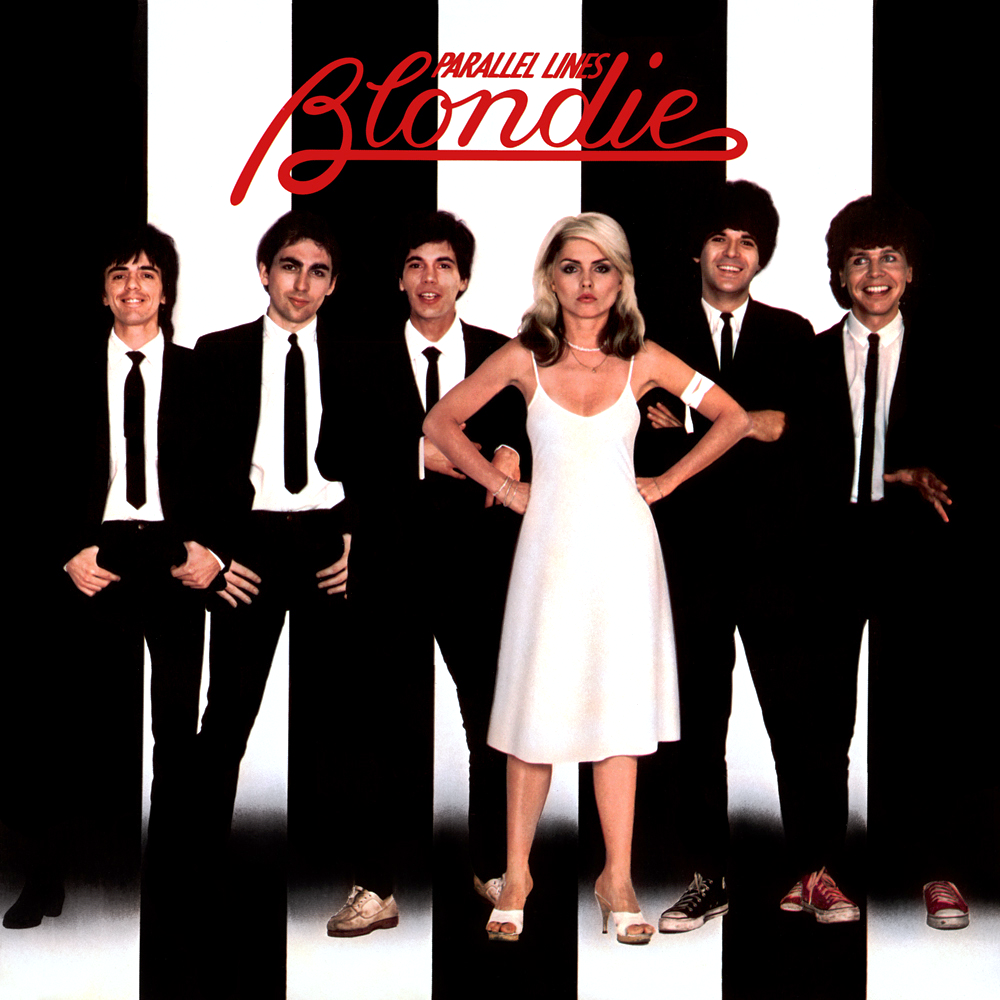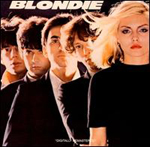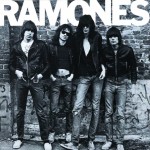Blondie : Parallel Lines

I first heard the sultry pop-punk voice of Debbie Harry on a K-Tel collection on 8-Track tape. To this day I can’t remember the name of the compilation, but I will forever remember playing the song “Heart of Glass” over and over again. I knew nothing of punk, my music knowledge being limited only to top 40 radio, hit collections, the John Denver tapes my mother collected, the Beatles, Eagles, CCR and the Saturday Night Fever soundtrack that must have been in every household in the late seventies. So, I was familiar with disco. Even with the disco feel of “Heart of Glass”, I felt that there was much more to it. At the time, I couldn’t piece together in my head what was soon to be the onset of the “New Wave.” Bands like Blondie and Devo were at the forefront, taking the aggressive and rebellious elements of punk, adding an electronic keyboard, and then turning the whole thing on its head by swirling it with elements of disco dance music. This is an extremely loose and naive interpretation of what New Wave music is, which is kind of like post-modernism. I have yet to meet any two people who can describe either the same way.
We enter the new wave with the electronic sound of a ringing telephone, as heard from the calling end. Then, like a beautiful but jarring bolt out of the blue, we hear Debbie Harry: “I’m in the phone booth, it’s the one across the hall / If you don’t answer I’ll just rip it off the wall.” So begins the opening track of Blondie’s Parallel Lines, “Hanging on the Telephone.” Harry does little to hide, and in fact stresses, a New York accent as she gives the Gotham City twist to words like talk, making it “twalk” as in “Coffee Twalk.” The album was their first with producer Mike Chapman, the beginning of a relationship that was tenuous at best, pulling some of the band members closer together, driving others further apart. It was two years after punk’s roots had begun to grow into the soil, mostly as a reaction to the disco crave, and at this point, with the Clash, the Ramones, and the Sex Pistols taking the underground world by storm, it seemed that the genre was the new direction.
Blondie is not as famous as the Ramones for being one of the bands that would play CBGB’s in its heyday, yet this is where Blondie first started getting attention. The mixture of pop, punk and yes, disco that made up their third album, Parallel Lines, that broke the band into the mainstream has caused people to come to the misguided notion that it was their first album. Even with their New York punk roots, for all practical intents and purposes, it might as well be considered their first. After all, the album is the first to produce any kind of hits for the band, for whatever reason you might want to attribute it to, the new production direction given by Chapman, songwriting from most every member of the band, the attempt at mass appeal, or perhaps sheer luck. “Hanging on the Telephone” leads into one of the band’s biggest hits, “One Way or Another.” The “take no prisoners” attitude on the song was possible inspiration for other female acts including Pat Benatar whose somewhat sister song, “Hit Me With Your Best Shot,” became a number one single two years later. “Sunday Girl” is a Motown/Beach Boys influenced song that is evidence of the confluence of styles that Blondie represented. If you never thought of Blondie as punk, all you would have to do is speed up the song to double speed and it would most likely sound like the Ramones covering “Do You Wanna Dance” or “California Sun.”
The biggest hit and the one still played on radio stations everywhere is the disco influenced “Heart of Glass.” The newest editions of the CD contain bonus tracks, one of which sheds some light into the origins of the smash hit. “Once I Had a Love (aka the Disco Song)” was an early demo of the song and sounds more like a reggae or skiffle song rather than disco, but Mike Chapman’s production drove it in such a groundbreaking direction, that the normally quiet and serious Harry eventually said to Chapman after a studio session, “I really like what you did with ‘Heart of Glass.'” So did the rest of the world, as that song helped propel the album to number one worldwide. Listening to Parallel Lines now, there is no denying the musical chemistry between Harry and guitarist Chris Stein, nor the explosive drumming of Clem Burke. They formed the nucleus of one of the greatest pop albums of all time. If nothing else, you should at least buy it for its great album cover, the stunning Harry in white, the rest of the band in black and white suits, Nigel Harrison and Clem Burke in Converse sneakers, Harrison with great Mr. Spock socks.
Label: Chrysalis
Year: 1978
Similar Albums/Albums Influenced: Blondie – Blondie
Blondie – Blondie Devo – Q: Are We Not Men? A: We Are Devo!
Devo – Q: Are We Not Men? A: We Are Devo! Ramones – Ramones
Ramones – Ramones

